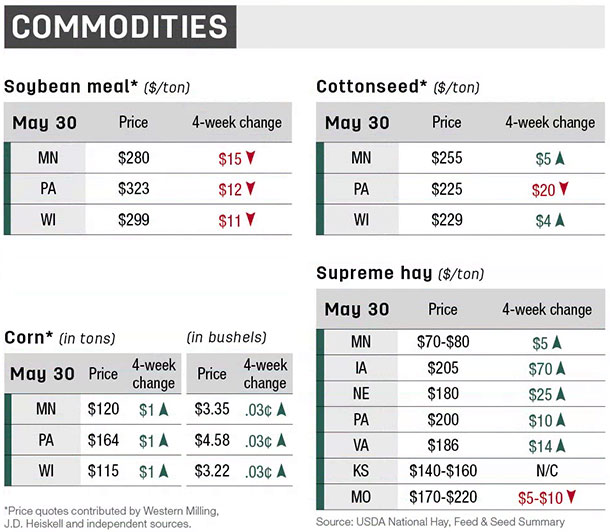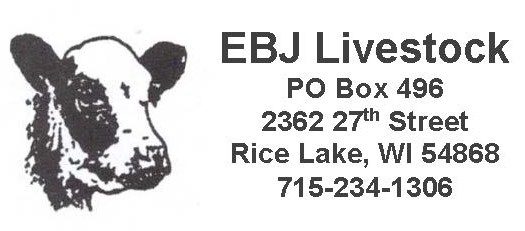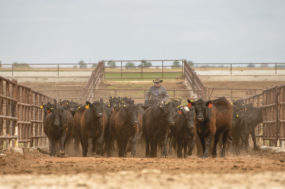Water
As a general rule of thumb, cattle require 2 gallons of water for every 100 pounds of bodyweight in the summer, and water intake can often double during extreme temperatures. Water consumption is the quickest and most efficient way for cattle to reduce core body temperature.
While water access in a grazing situation is often sufficient due to access to ponds or streams, water access in a drylot or confinement setting is often insufficient in the Midwest. Cattle should have a minimum of 2 inches per head of water access and at least 3 inches during heat spells.
Shade
While excessive congregation under trees can cause decreased forage productivity and discourages uniform grazing and manure distribution, shade is crucial for mitigating heat stress. A cow’s ability to avoid direct sunlight helps alleviate rising core body temperatures and is critical as prolonged periods of elevated body temperature can negatively impact a cow’s fertility and milk production.
Air movement
The same windbreak structures that provide relief from cold stress in winter months still reduce the amount of air flow this time of year and can further compound heat stress risk. Removal of windbreaks during summer months promotes air flow and allows for animal cooling.
Alter feeding times
During periods of excessive heat, consider feeding cows in a drylot or confinement system or moving cows to new paddocks in a rotational grazing system during late afternoon or evening. This allows the peak of heat production from fermentation to occur during cooler hours of the night.
Likewise, if supplementing cows on pasture, providing the feedstuff in the evening encourages cows to leave the loafing areas and stimulates grazing.
Handling cattle
Even low-stress cattle handling methods create some stress for cattle and intensify heat stress risks. Thus, moving or processing cattle on hot days should be avoided and, if necessary, completed before mid-morning.
Keep in mind managing heat stress starts with prevention. Contact your beef extension specialist, veterinarian and nutritionist to develop a plan to minimize heat stress in your cow herd. ![]()

-
Erika Lundy
- Extension Beef Program Specialist - Iowa Beef Center
- Iowa State University
- Email Erika Lundy








